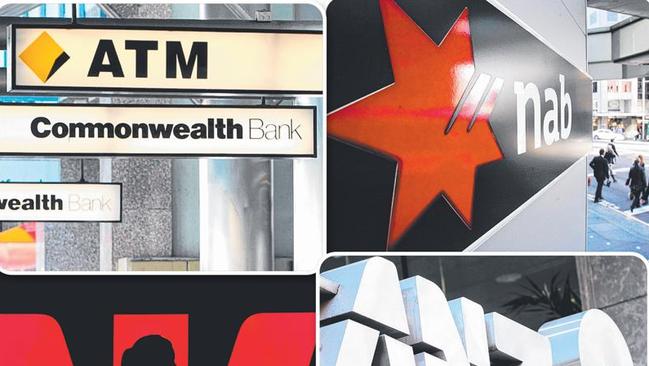Banking royal commission: Banks splash $60m fixing up problems
Australian banks have spent more than $60m fixing issues to be raised in the first fortnight of the royal commission.

Australian banks have already spent more than $60 million fixing issues to be raised in the first fortnight of public hearings by the financial services royal commission, which starts today.
The royal commission, headed by former High Court judge Kenneth Hayne, will spend the next two weeks examining misconduct and other problems in home loans, car loans and consumer credit areas.
It follows a class action over one of the areas to be put under the spotlight, credit card insurance, announced yesterday by law firm Slater & Gordon.
In recent months, as the royal commission loomed, bank executives moved to position their institutions as having already dealt with the issues to be raised in the first public session, with new CBA boss Matt Comyn last week announcing it would stop selling credit card and personal loan insurance.
A second round of hearings next month will focus on one of the banking industry’s most scandal-ridden sectors, financial planning.
Work by the corporate regulator to clean up financial planning continues, with the Australian Securities & Investments Commission yesterday announcing it had permanently banned former CBA financial planner Koresh Daniel Houghton, of Melbourne suburb Endeavour Hills, after an investigation found he falsified documents by cutting and pasting customer signatures.
CBA has paid the highest amount to settle issues to be probed by the commission, shelling out $28.7m, made up of $26m to compensate hundreds of thousands of customers who were sold useless credit card and personal loan insurance and an additional $2.7m for penalties and write-offs related to unsuitable overdrafts.
Westpac comes in second, refunding $11.3m to 3400 customers over credit card increases. In addition, in 2016 it shelled out almost $500,000 to settle with customers whose cars were wrongly repossessed, but it is understood this particular case will not be examined by the royal commission.
Other issues to be confronted by the royal commission over the next two weeks include fraudulent loan applications at NAB’s mortgage introduction program, fraudulent brokers and broker arrangements at the CBA-owned Aussie Home Loans, and problems with the accreditation of brokers at CBA itself.
According to UBS analyst Jonathan Mott, as much as $500 billion of Australia’s $1.7 trillion home mortgage book is made up of “liar loans” that are based on incorrect information.
Orders made by the royal commission last week indicate that NAB was tipped off to fraud in the mortgage introduction program by a whistleblower, whose name Mr Hayne has suppressed.
In November, NAB sacked 20 bankers after revealing that since 2013 it issued as many as 2300 loans without accurate information or documents.
“We have no tolerance for bankers not following processes,” the bank’s chief customer officer, Andrew Hagger, said at the time.
“There are consequences when bad behaviours occur.”
It is believed NAB has written to the customers involved and is reviewing their files.
In August, CBA also overhauled the standards it requires of mortgage brokers, increasing education and experience requirements.
At Aussie, where CBA last year took full control from founder John Symonds, ASIC permanently banned former broker Madhvan Nair, from Sydney suburb Kellyville, after he was convicted of 18 counts of home loan fraud.
There have been four Aussie brokers convicted of fraud over the company’s 24-year history, but none of their customers have been paid remediation because an internal investigation found none had lost out.
ANZ is to be put under the spotlight over car finance practices, overdrafts and account administration errors.
It has paid a total of $10m in fines and remediation to settle with about 320 customers who took out loans with its then-subsidiary Esanda between 2013 and 2015.
The bank settled with ASIC in January after admitting it failed to properly verify 12 customer applications submitted by three brokers. In 2016, it refunded customers $5m after failing to give them fee reductions or waivers and paid $212,500 in penalties.
Additional reporting: AAP



To join the conversation, please log in. Don't have an account? Register
Join the conversation, you are commenting as Logout